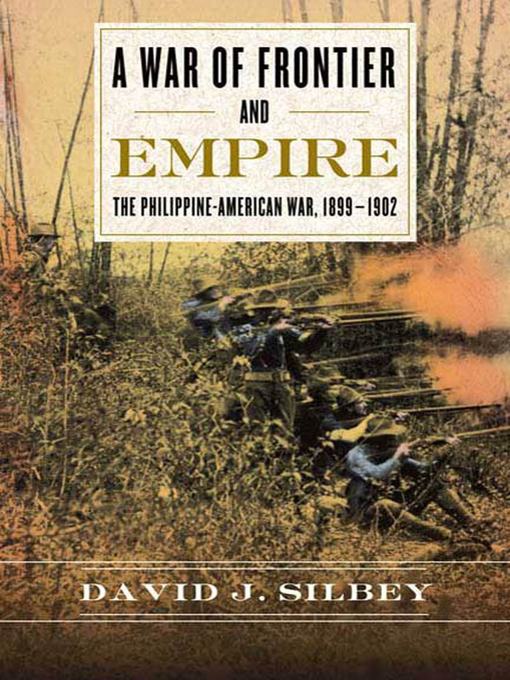First-rate military history, A War of Frontier and Empire retells an often forgotten chapter in America's past, infusing it with commanding contemporary relevance.
It has been termed an insurgency, a revolution, a guerrilla war, and a conventional war. As David J. Silbey demonstrates in this taut, compelling history, the 1899 Philippine-American War was in fact all of these. Played out over three distinct conflicts—one fought between the Spanish and the allied United States and Filipino forces; one fought between the United States and the Philippine Army of Liberation; and one fought between occupying American troops and an insurgent alliance of often divided Filipinos—the war marked America's first steps as a global power and produced a wealth of lessons learned and forgotten.
- Newly Added eBooks - Available Now
- The Hit List (Books We Love)
- Top 500 eBook Fiction
- Top 500 eBook Nonfiction
- Popular Romance
- Books you may have missed
- Health & Fitness
- Business Biographies
- Fantasy
- Historical Fiction
- Thrillers
- Crime
- Self-Enrichment
- See all ebooks collections
- Newly Added Audiobooks - Available Now
- Top 500 Audiobook Fiction
- Top 500 Audiobook Nonfiction
- Business Biographies
- Business & Management
- Self-Enrichment
- Audiobooks for your commute
- Thrillers
- Foreign Language Study
- Humour
- See all audiobooks collections
- Newly Added
- Children’s Favorite Characters
- Most Popular Children's Titles
- Comic & Graphic Books
- Children's Read-Alongs
- Popular Teen Reads
- Armchair Explorers for Children and Teens
- Science Fiction & Fantasy - Available Now
- Roald Dahl Collection
- Popular eBooks
- See all children & teen collections
- Chinese Titles - Adult
- Chinese Titles - Young Adults
- Chinese Titles - Children's
- 中文书籍
- Malay Titles - Adults
- Malay Titles - Young Adults
- Malay Titles - Children's
- Tamil Titles
- Tamil Titles - Children's
- See all language collections collections

